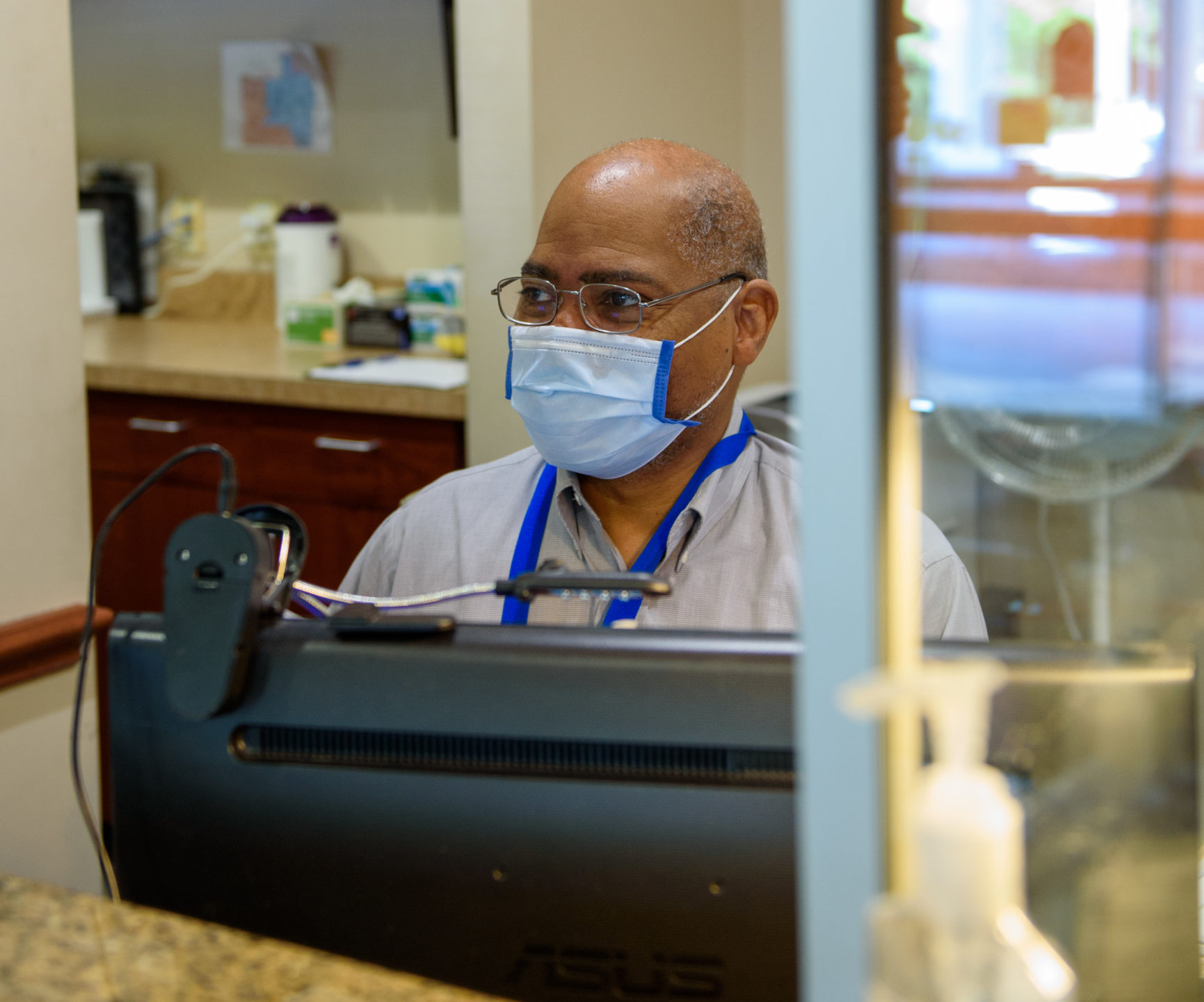Access your own patient portal, provided by NCSH.

Surgery
What to Expect for Your Cataract Surgery at NCSH
About Cataract Eye Surgery and When You Need it
A cataract is a cloudy formation in the lens of the eye that blurs or otherwise changes vision. Cataracts are very common in people as they age. More than 50% of adults older than 80 have cataracts or have had surgery for them.
Cataracts interfere with vision, which ultimately can impair your ability to function and perform normal tasks. Fortunately, cataract surgery is simple, routine, and very safe. Our ophthalmology and cataract specialists are experts in eye surgery and provide skilled, compassionate care. Learn more about what to expect if you need surgery for cataracts.
What Are Cataracts?
A cataract is cloudiness in the eye’s lens. The lens is the part of the eye that focuses incoming light to allow you to see objects clearly. As it becomes cloudy, your vision will change and deteriorate. Mild cataracts usually don’t cause many symptoms. As they worsen, you might experience:

- Cloudy, blurry, or fuzzy vision
- Faded colors
- Poor night vision
- Halos around lights
- Increasing sensitivity to bright lights
- Double vision as the cataract enlarges
- Frequent vision prescription changes
Ultimately, cataracts can lead to total functional vision loss if not treated.
What Causes Cataracts?
Cataracts occur when proteins in the eye’s lens break down. By far the most common cause is age. After around age 40, natural changes in the eyes result in the protein breakdown. Age-related cataracts develop slowly. Most people have no or few symptoms or vision issues for years.
Other potential causes—including eye injuries, eye surgery for another issue, and certain eye conditions—can result in more rapid formation of cataracts. Cataracts can be congenital too, meaning they are present at birth.
Several risk factors—in addition to aging—that make it more likely you’ll develop cataracts include:
- Family history of cataracts
- High blood pressure
- Obesity
- Diabetes
- Smoking
- Long-term sunlight exposure
- Past eye injury or surgery
- Long-term use of corticosteroids
- Frequent and heavy alcohol use
How Do I Know if I Need Cataract Surgery?
Surgery is the only way to correct cataracts, but you might not need the procedure yet. Mild cataracts don’t necessarily cause symptoms. Instead of surgery, your doctor might recommend regular eye exams to check on them. They will also suggest taking steps to support eye health:
- Quit smoking.
- Manage diabetes if you have it.
- Eat a healthy diet and lose weight if necessary.
- Protect your eyes from ultraviolet light with appropriate sunglasses.
- Update your eyewear prescriptions regularly.
- Limit night driving if your night vision begins to deteriorate.
To determine when you need the procedure, an eye surgeon will examine your eyes, test your vision, and evaluate your symptoms and limitations. In general, you will benefit from surgery once your symptoms begin to interfere with daily life and normal activities.
What Happens During Cataract Surgery?
Cataract surgery is a common and safe procedure. The surgeon removes your natural lens and replaces it with a clearer, artificial lens called an intraocular lens. This is an outpatient procedure that, for most people, does not require general anesthesia. You will get numbing drops or an injection and be awake for the surgery. You will not be able to feel or see what the surgeon is doing.
The surgeon makes very small incisions in the cornea to reach the lens. They use an instrument to break up the cloudy lens and remove it from the eye. They then insert the intraocular lens. The incisions heal on their own without stitches.
How to Prepare for the Procedure
The cataract surgeon will measure your eye’s size and shape a day or two before the procedure. This helps them ensure the right focusing power for your artificial lens. They might prescribe eye drops to prepare you for the surgery. These prevent infections and reduce pre- and post-operative swelling. Your surgeon will tell you anything else you need to do to prepare for surgery, such as not eating or stopping certain medications.
Be sure you plan for a ride home from the surgery. You will not be able to drive yourself. Set your home up for recovery with everything you need to rest for a few days.
Recovery from Cataract Eye Surgery
Cataract surgery is fairly quick and performed on an outpatient basis. Most patients can leave soon after the procedure as long as they have a ride.
You will be able to see right away, but expect your vision to still be blurry. Most patients experience the full effects of cleared vision in one to three days. In some instances, it can take weeks.
Your surgeon will send you home with a patch, bandage, or eye shield to prevent you from rubbing your eyes. You will also get drops to help the eyes heal. They will give you additional recovery instructions:
- Move slowly and carefully as your vision and perception recover.
- Wear your patch or bandage for the specified period of time, especially at night when you might inadvertently rub your eyes.
- Keep water, soap, and shampoo out of your eyes for at least a week.
- Avoid wearing eye makeup for a week or two.
- Don’t go swimming or do any gardening or dusting for about a week.
- Wear high-quality sunglasses when outside, especially in the year after surgery.
- Avoid strenuous activities and bending over for two weeks or as recommended by your doctor.
Surgery to remove cataracts is safe and routine for eye surgeons. If cataracts are beginning to impede your normal activities, it’s time to see a specialist. Contact North Carolina Specialty Hospital to request an appointment with one of our experienced ophthalmologists.
Stay Current
Educational Articles & More
View News & Press